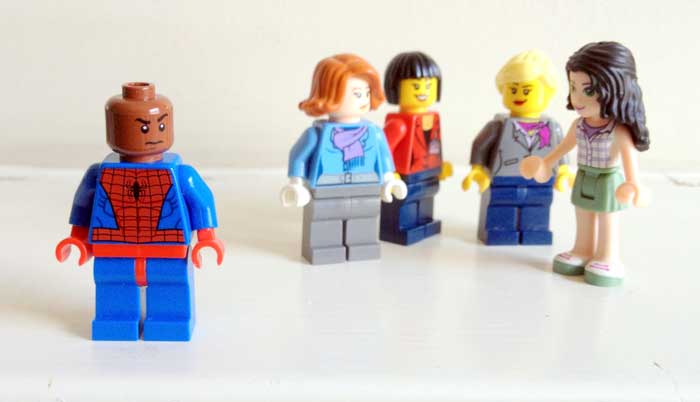
Like any parent, I want my kid to be happy at school. This is her first year, and while she knew a couple of the kids before classes started, there were still a lot of new faces to get to know. I figured friendships would form naturally, and that’s true to a certain extent. But I soon realized many friendships were swiftly forming because of connections outside of the classroom.
One aspect of parenting that stay-at-home dads have to deal with is the “mother huddle.” That is those groups of moms who congregate at parks, coffee shops and playgrounds. The mother huddle is as much an idea as a reality. For me, it represents those groups of mothers that don’t want me as a member.
The huddle was why so many of my daughter’s classmates were hitting the ground running with their playdate game. Moms on the town catching up over coffee, kids in tow, become playdates, and these kids were forming stronger friendships and gaining confidence because of them. This was clearly something I was needed to deal with.
Making and missing connections
At this stage in my parenting life, I am used to being in female-dominated environments. I’ve been a stay-at-home dad since my wife returned to work when our daughter was 6 months old.
Initially, I was a bit wary of how our antenatal group would take to a man invading their exclusive weekday ladies’ time. But I needn’t have worried. They expressed not a single moment of uncomfortableness, and were more than happy to have conversations about cracked nipples and stretched vaginas in front of me while (in some cases) breastfeeding their kids.
A couple of years later, we moved. My wife again got a full-time job and I stayed home with our now toddler. Our old support network was gone, I was now a stay-at-home dad in a new town where we knew no one. And as the at-home parent, I knew it was up to me to make those connections.
It didn’t go well at first. At various baby and toddler groups, none of the moms would talk to me. I didn’t feel bad about it for me — but I did for our daughter, who I felt at that stage (coming up to age 2) would benefit greatly from regular social time with her peers.
Refusing to be defeated, I kept trying new groups — and eventually I found some friendly faces with similarly aged kids. But I was always aware of the mother huddle.
By definition, there were never dads there. Sometimes, mothers I thought I got on with would be in there, but I’d never be invited in. I even got totally blanked on a few occasions.
Now I have to face the mother huddle again, this time at school. The latest huddle has some familiar faces, but also new ones — and playdates were being exchanged as a form of social currency. I needed to break in.
My daughter and I were out and about one day, and she spotted a girl across the road. Turns out they had played together that week at school. Later, my daughter asked if they could have a playdate.
The invitation
The next day, I spotted the mom on the playground and went up to ask her. I was basically a strange man either inviting her to my place, or inviting myself over to hers. I wasn’t sure how she was going to take this.
Her reaction surprised me. She was grateful I had come up to talk to her as she was worried that her daughter wasn’t making new friends. So a few days later, we went over to her house. We chatted over coffee while the kids played in the other rooms. Turns out that she works four days a week, and doesn’t really know any of the other parents. I think she feels even more apart from the huddle than I do.
The next level to overcome was the unsupervised playdate, e.g., when my daughter would go to their friend’s house without me or I would pick the kids up at school for a playdate at our place. How would these mothers feel about their children (mostly girls) going home with a man they hardly know? I thought there might be trouble ahead.
But there wasn’t. All invitations were gratefully received, and many successful playdates later, I’m happy to have overcome my huddle outsider status. That’s not to say I’m now in the huddle. I’m happy to leave them chatting about each other’s coats after they drop their kids off (a conversation I recently walked past), but I haven’t let any potential exclusion impact on my daughter’s social development.
So perhaps the mother huddle isn’t the exclusionary force it once was. Maybe it never was in the first place.
 About the author
About the author
In a previous life, Simon Ragoonanan of the United Kingdom was a television producer. He has been a stay-at-home dad to his daughter since she was 6 months old. He occasionally still works in TV, is a freelance writer, and blogs about being the dad of a daughter at Man vs. Pink.

Leave a Reply